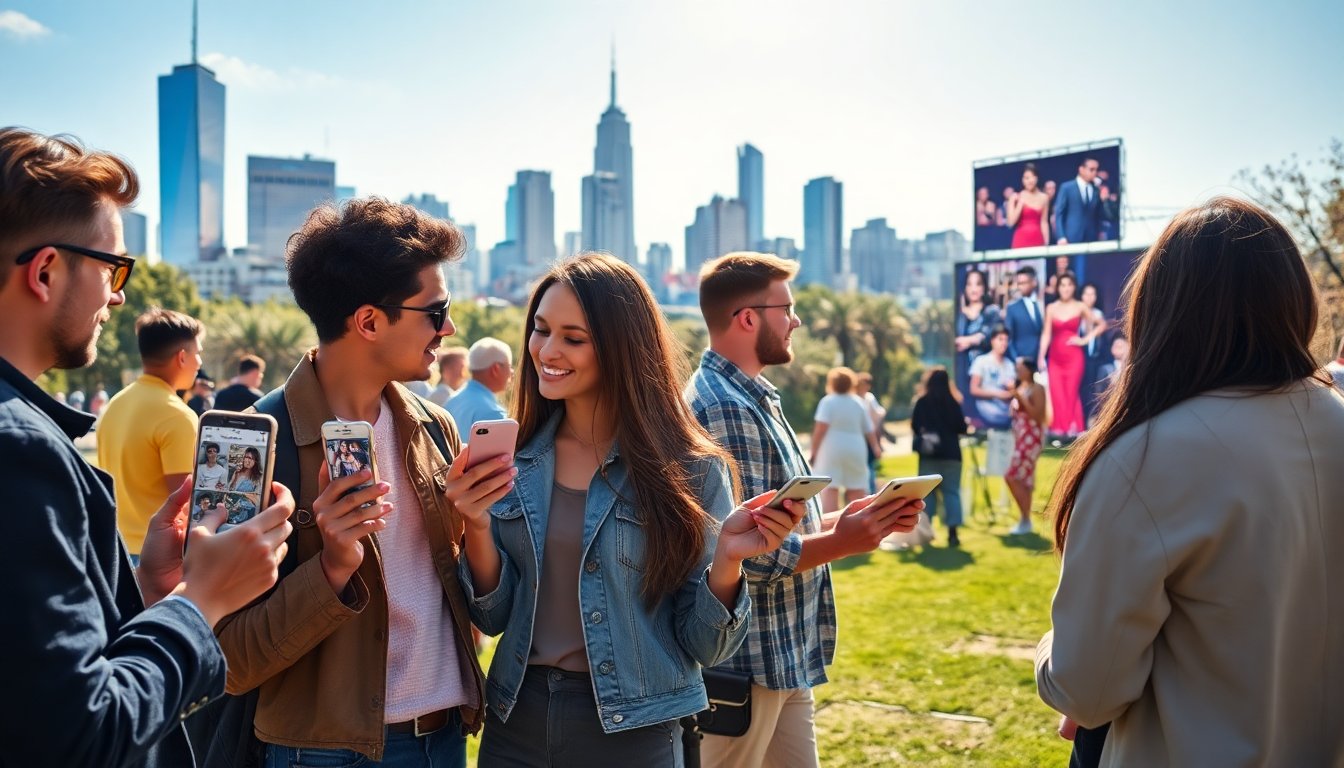Table of Contents
The phenomenon of celebrity culture has become a defining aspect of American society, influencing various elements such as fashion and political discussions. With the growth of social media and the relentless 24-hour news cycle, celebrities have evolved from simple entertainers into powerful figures capable of shaping public opinion and trends. This article examines the evolution of American celebrity culture, its societal impact, and the significant role social media plays in this transformation.
The historical context of American celebrity culture
The roots of American celebrity culture can be traced back to the early 20th century, coinciding with the rise of the Hollywood film industry. Figures like Charlie Chaplin and Mary Pickford captivated audiences, marking the dawn of the modern celebrity. As the film industry expanded, so did the public’s fascination with these stars, leading to the emergence of fan magazines and gossip columns that further intensified this obsession.
The impact of radio and television
The introduction of radio in the 1920s and later television in the 1950s transformed the way celebrities connected with the public. Icons such as Lucille Ball and Elvis Presley became household names as families gathered around their televisions to watch their performances. This era marked a significant shift in celebrity culture, where personal lives were often displayed, blurring the lines between reality and fiction.
The rise of social media and its implications
The emergence of social media platforms like Instagram, Twitter, and TikTok has further reshaped American celebrity culture. Celebrities can connect directly with their fans, sharing glimpses of their lives and engaging in real-time conversations. This direct communication has made celebrities appear more relatable. However, it has also introduced new challenges for both stars and their audiences.
The double-edged sword of fame
Social media offers celebrities a platform to build their personal brands and connect with fans. However, it also subjects them to intense scrutiny. The pressure to maintain an ideal image can lead to mental health challenges, and the relentless demand for content can be overwhelming. Numerous celebrities have openly discussed the negative impact of social media on their mental well-being, emphasizing the importance of finding a balance between their public persona and private life.
Celebrity influence on culture and society
American celebrities significantly shape culture and societal norms. They are often at the forefront of fashion trends and political movements. For example, artists like Beyoncé and Taylor Swift have leveraged their platforms to champion social justice issues, motivating their fans to participate in activism. This trend highlights how celebrities can amplify crucial messages and facilitate societal change.
The commercialization of celebrity culture
The commercialization of celebrity culture has significantly contributed to the rise of influencer marketing. Brands are increasingly collaborating with celebrities to promote their products. This trend has blurred the lines between genuine endorsements and paid promotions, leading to a more skeptical audience. As consumers become increasingly aware of this commercialization, they demand authenticity from their favorite stars, thereby reshaping the dynamics of celebrity endorsement.
The evolution of American celebrity culture is influenced by historical contexts, technological advancements, and societal changes. Celebrities continue to shape trends and public opinion, and their impact on culture remains profound. Understanding this dynamic is crucial for navigating the complexities of modern celebrity culture and recognizing the responsibilities that accompany fame.


